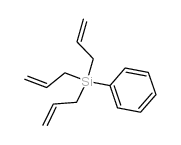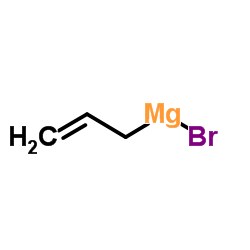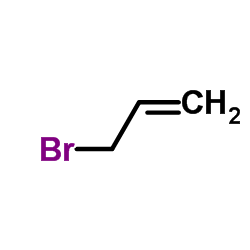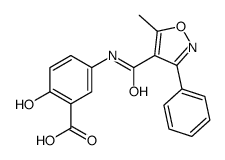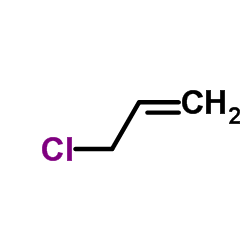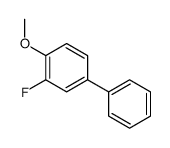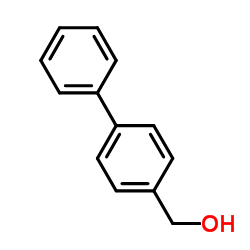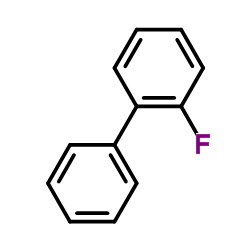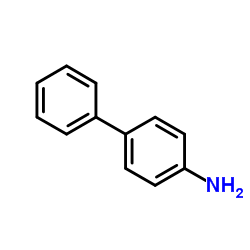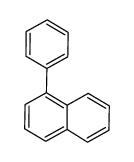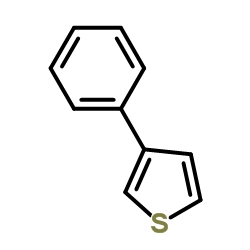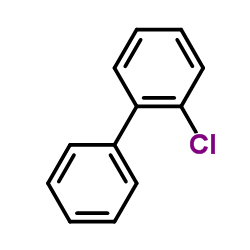2633-57-0
| Name | phenyl-tris(prop-2-enyl)silane |
|---|---|
| Synonyms |
Triallyl-phenyl-silan
phenyltriallylsilane triallyl-phenyl-silane |
| Density | 0.88g/cm3 |
|---|---|
| Boiling Point | 142ºC |
| Molecular Formula | C15H20Si |
| Molecular Weight | 228.40500 |
| Flash Point | 118.1ºC |
| Exact Mass | 228.13300 |
| LogP | 3.90040 |
| Vapour Pressure | 0.00276mmHg at 25°C |
| Index of Refraction | 1.501 |
Synonym: Section 2 - COMPOSITION, INFORMATION ON INGREDIENTS
Risk Phrases: 23/24/25 48 Section 3 - HAZARDS IDENTIFICATION EMERGENCY OVERVIEW
Toxic by inhalation, in contact with skin and if swallowed. Danger of serious damage to health by prolonged exposure. Potential Health Effects Eye: May cause eye irritation. Skin: Toxic in contact with skin. Ingestion: Poison by ingestion. The toxicological properties of this substance have not been fully investigated. Inhalation: The toxicological properties of this substance have not been fully investigated. Toxic if inhaled. Chronic: Not available. Section 4 - FIRST AID MEASURES Eyes: Immediately flush eyes with plenty of water for at least 15 minutes, occasionally lifting the upper and lower eyelids. Get medical aid immediately. Skin: Get medical aid immediately. Immediately flush skin with plenty of water for at least 15 minutes while removing contaminated clothing and shoes. Ingestion: Get medical aid immediately. Wash mouth out with water. Inhalation: Remove from exposure and move to fresh air immediately. If not breathing, give artificial respiration. If breathing is difficult, give oxygen. Get medical aid. Notes to Physician: Section 5 - FIRE FIGHTING MEASURES General Information: As in any fire, wear a self-contained breathing apparatus in pressure-demand, MSHA/NIOSH (approved or equivalent), and full protective gear. Extinguishing Media: Use foam, dry chemical, or carbon dioxide. Section 6 - ACCIDENTAL RELEASE MEASURES General Information: Use proper personal protective equipment as indicated in Section 8. Spills/Leaks: Absorb spill with inert material (e.g. vermiculite, sand or earth), then place in suitable container. Section 7 - HANDLING and STORAGE Handling: Do not breathe dust, vapor, mist, or gas. Do not get in eyes, on skin, or on clothing. Use only in a chemical fume hood. Storage: Store in a cool, dry place. Store in a tightly closed container. Section 8 - EXPOSURE CONTROLS, PERSONAL PROTECTION Engineering Controls: Use adequate ventilation to keep airborne concentrations low. Exposure Limits CAS# 2633-57-0: Personal Protective Equipment Eyes: Not available. Skin: Wear appropriate protective gloves to prevent skin exposure. Clothing: Wear appropriate protective clothing to prevent skin exposure. Respirators: Follow the OSHA respirator regulations found in 29 CFR 1910.134 or European Standard EN 149. Use a NIOSH/MSHA or European Standard EN 149 approved respirator if exposure limits are exceeded or if irritation or other symptoms are experienced. Section 9 - PHYSICAL AND CHEMICAL PROPERTIES Physical State: Liquid Color: Not available. Odor: Not available. pH: Not available. Vapor Pressure: Not available. Viscosity: Not available. Boiling Point: 142 deg C @ 760.00m Freezing/Melting Point: Not available. Autoignition Temperature: Not available. Flash Point: Not available. Explosion Limits, lower: Not available. Explosion Limits, upper: Not available. Decomposition Temperature: Solubility in water: Specific Gravity/Density: Molecular Formula: Molecular Weight: 216.23 Section 10 - STABILITY AND REACTIVITY Chemical Stability: Not available. Conditions to Avoid: Not available. Incompatibilities with Other Materials: Not available. Hazardous Decomposition Products: Carbon monoxide, carbon dioxide. Hazardous Polymerization: Has not been reported Section 11 - TOXICOLOGICAL INFORMATION RTECS#: CAS# 2633-57-0 unlisted. LD50/LC50: Not available. Carcinogenicity: Phenyltriallylsilane - Not listed by ACGIH, IARC, or NTP. Section 12 - ECOLOGICAL INFORMATION Section 13 - DISPOSAL CONSIDERATIONS Dispose of in a manner consistent with federal, state, and local regulations. Section 14 - TRANSPORT INFORMATION IATA No information available. IMO No information available. RID/ADR No information available. Section 15 - REGULATORY INFORMATION European/International Regulations European Labeling in Accordance with EC Directives Hazard Symbols: T Risk Phrases: R 23/24/25 Toxic by inhalation, in contact with skin and if swallowed. R 48 Danger of serious damage to health by prolonged exposure. Safety Phrases: S 28 After contact with skin, wash immediately with... S 36/37/39 Wear suitable protective clothing, gloves and eye/face protection. S 38 In case of insufficient ventilation, wear suitable respiratory equipment. S 45 In case of accident or if you feel unwell, seek medical advice immediately (show the label where possible). WGK (Water Danger/Protection) CAS# 2633-57-0: No information available. Canada None of the chemicals in this product are listed on the DSL/NDSL list. CAS# 2633-57-0 is not listed on Canada's Ingredient Disclosure List. US FEDERAL TSCA CAS# 2633-57-0 is not listed on the TSCA inventory. It is for research and development use only. SECTION 16 - ADDITIONAL INFORMATION N/A |
| Hazard Codes | T: Toxic; |
|---|---|
| Risk Phrases | R48 |
| Safety Phrases | 45-38-36/37/39-28A |
| HS Code | 2931900090 |
| Precursor 7 | |
|---|---|
| DownStream 10 | |
| HS Code | 2931900090 |
|---|---|
| Summary | 2931900090. other organo-inorganic compounds. VAT:17.0%. Tax rebate rate:13.0%. Supervision conditions:AB(certificate of inspection for goods inward,certificate of inspection for goods outward). MFN tariff:6.5%. General tariff:30.0% |
